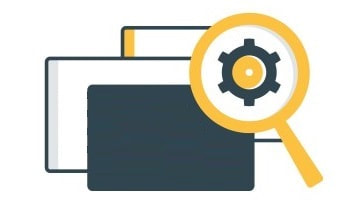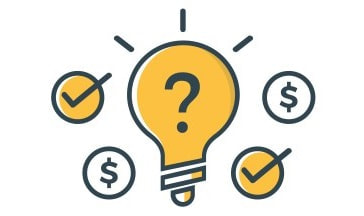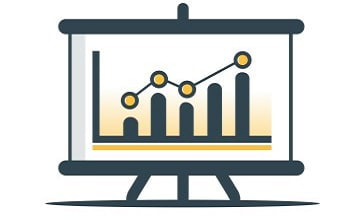IG Markets Review
IG Markets is a British investment broker with operations in Australia, which the firm extends its services to the New Zealand market with a license from the Financial Markets Authority.
Updated 17 July 2024
IG Markets is a well-known online trading brand offering numerous investment products to speculate on various financial markets. Although the company is headquartered in London, UK, the firm is present worldwide. The group has an established presence in Melbourne. The firm is licensed by the Australian Securities and Investments Commission (ASIC) and has a Derivatives Issuer license from the New Zealand Financial Markets Authority (FMA).
IG Markets summary
Investment risk warning
Any type of investment comes with risk as there is always a chance that when you liquidate a position, the market value is lower than what you initially paid. However, trading highly speculative and leveraged products such as forex, contracts for difference and options are riskier by orders of magnitude. Before investing in any products, whether it be cash equities or leveraged CFDs, make sure you know what you’re doing and have a tried and tested trading strategy.
Our guide covers:
Useful guides:
IG Markets summary
- IG Markets was founded in the UK in 1974 and has been listed on the London Stock Exchange (LON:IGG) since July 2000.
- The company offers derivatives and direct markets access (DMA) trading.
- IG Markets offers more than 17,000 global markets to New Zealand traders.
- IG offers CFDs, shares, and options to trade numerous asset-classes, such as currency pairs, stocks, ETFs, indices, commodities, cryptocurrencies, bonds, interest rates and more.
- Trade a handful of instruments over the weekend with IG’s weekend trading service.
- IG Markets offers a unique pre-IPO grey market to speculate on shares before the company is listed on public stock exchanges.
- There is a choice of multiple trading platforms: IG’s own platform, MetaTrader 4, ProRealTime and L2 Dealer.
- Open a demo trading account to test some of the trading platforms available.
Investment risk warning
Any type of investment comes with risk as there is always a chance that when you liquidate a position, the market value is lower than what you initially paid. However, trading highly speculative and leveraged products such as forex, contracts for difference and options are riskier by orders of magnitude. Before investing in any products, whether it be cash equities or leveraged CFDs, make sure you know what you’re doing and have a tried and tested trading strategy.
Our guide covers:
- Overview of the IG Trading Platform
- Costs to Trade with IG Markets
- Getting Started with IG Markets
- IG Markets - Frequently Asked Questions
Useful guides:
IG Markets in New Zealand
To trade with IG Markets in New Zealand, you'll need to visit the company’s Australian website. Although the company is registered and authorised in New Zealand, IG Markets does not have a physical New Zealand address and provides services from its Australian place of business on Collins Street (Melbourne).
The services provided by IG Markets to New Zealand residents is IG Markets Limited, a company incorporated in the United Kingdom and registered in New Zealand as an overseas non-ASIC company. IG Markets Limited is registered as a Financial Services Provider with FSP no. FSP486026 and licensed as a Derivatives Issuer with the Financial Markets Authority since February 2015.
Services to Australians are provided either by IG Markets Limited or IG Australia Pty Ltd, depending on whether they have a CFD trading account or a share trading account and whether the trading account was opened before or after the 15th of November 2020. IG Australia Pty Ltd registered in Australia with ABN 93 096 585 410 and authorised by the Australian Securities Exchange Commission (ASIC) with licensed number AFSL #515106.
The services provided by IG Markets to New Zealand residents is IG Markets Limited, a company incorporated in the United Kingdom and registered in New Zealand as an overseas non-ASIC company. IG Markets Limited is registered as a Financial Services Provider with FSP no. FSP486026 and licensed as a Derivatives Issuer with the Financial Markets Authority since February 2015.
Services to Australians are provided either by IG Markets Limited or IG Australia Pty Ltd, depending on whether they have a CFD trading account or a share trading account and whether the trading account was opened before or after the 15th of November 2020. IG Australia Pty Ltd registered in Australia with ABN 93 096 585 410 and authorised by the Australian Securities Exchange Commission (ASIC) with licensed number AFSL #515106.
IG Markets company overview
IG Markets launched in 1974 as IG Index, which stood for Investors Gold Index. As the company grew to offer more financial assets and instruments, it rebranded to IG Markets. On the 4th of May 2015, IG Group listed on the London Stock Exchanges’ main market, where shares were floated at £2.85. In the same year, the company became a constituent of the FTSE250.
Here are a few interesting key events from the company’s history:
Here are a few interesting key events from the company’s history:
- In July 2002, IG Markets began its entry into the Australian online trading market, becoming the country’s very first CFD provider.
- In 2003, the company launched its first online trading platform. The company released its first mobile trading app on the Sony Ericsson P800 device in the same year.
- In 2013, IG became the first CFD broker to offer Bitcoin trading.
- In 2014, the company reached the 1,000-employee milestone and launched IG Bank in Switzerland.
- In September 2016, IG Group acquired popular forex trading blog DailyFX from struggling US broker FXCM for US$40m.
IG Markets trading and investment products
IG Markets offers a wide range of trading instruments that can essentially be categorised as either derivatives products and exchange-traded products. For example, IG Markets offers two trading account types; one is for investing in stocks and buying a piece of a company, the other is a CFD trading account where you hold leveraged short term positions that are settled in cash.
Share trading with IG Markets
To trade shares with IG Markets, you’ll need to open a dedicated account. At some points during the live account application process, you’ll be asked to select the type of account you want, and the choices will be either CFD account or share dealing account. The IG share dealing account is for buying and selling stocks and ETFs without leverage. As there is no leverage involved, it means there is no risk of your account being liquidated.
You can find more than 50 New Zealand shares, 600 Australian shares, 12,000 international shares and 6,000 ETFs.
You can find more than 50 New Zealand shares, 600 Australian shares, 12,000 international shares and 6,000 ETFs.
CFD trading with IG Markets
IG Markets specialises in CFD trading. The company lists more than 17,000 products, spanning numerous asset classes and stock exchanges, which can all be traded from one account.
IG Markets offers the following markets as CFDs: forex, indices, shares, exchange-traded funds, commodities, cryptocurrencies, options, interest rates, bonds and sectors.
Weekend trading
IG Markets is one of the few brokers offering weekend trading products. On Saturdays and Sundays, you can trade eleven markets. Because there is no external liquidity for the forex or index markets on the weekends, the liquidity depends on clients trading activity. Therefore, these products are rather tame. However, the three cryptocurrency pairs and the Crypto 10 Index are much more active.
Pre-IPO trading
Another unique feature offered by IG is the ability to speculate on upcoming IPOs. When there is an upcoming IPO with significant interest, such as the recent AirBNB listing, IG will operate a grey market, allowing clients to go long or short on the company before it even lists on a public exchange.
IG Markets offers the following markets as CFDs: forex, indices, shares, exchange-traded funds, commodities, cryptocurrencies, options, interest rates, bonds and sectors.
Weekend trading
IG Markets is one of the few brokers offering weekend trading products. On Saturdays and Sundays, you can trade eleven markets. Because there is no external liquidity for the forex or index markets on the weekends, the liquidity depends on clients trading activity. Therefore, these products are rather tame. However, the three cryptocurrency pairs and the Crypto 10 Index are much more active.
Pre-IPO trading
Another unique feature offered by IG is the ability to speculate on upcoming IPOs. When there is an upcoming IPO with significant interest, such as the recent AirBNB listing, IG will operate a grey market, allowing clients to go long or short on the company before it even lists on a public exchange.
IG Markets trading platforms
IG Markets offers four distinct trading platforms for different types of traders and investors:
IG Markets platform
IG Markets offers a proprietary trading platform for accessing CFD trading accounts and share trading accounts. The platform is available to download on your mobile device and access from a web browser. On the web, the IG Markets trading application is essentially a blank canvas where you can place various trading elements and adjust the size according to your preference, allowing you to customise your trading interface. The platform consolidates numerous tools such as an aggregated news feed with content from Reuters, IG’s in-house analysts, custom price and indicator level alerts, and trading signals.
Most traders who sign up with IG Markets will use this trading platform.
MetaTrader 4
MetaTrader 4 is a popular trading platform offered by the overwhelming majority of forex and CFD brokers. For traders, the benefit is consistency. They can switch from one broker to another without learning a new interface, adjusting their trading strategy or re-developing their trading bots. The IG MT4 platform is only for trading FX & CFDs and doesn’t offer the thousands of instruments available on other IG platforms. There are approximately fifty FX pairs, fourteen indices, four commodities and four cryptocurrencies listed on the platform.
ProRealTime
ProRealTime is an advanced trading platform that connects traders to IG Markets’ CFD products. The platform offers a variety of sophisticated tools and indicators with a focus on delivering real-time market data and split-second order execution. This platform is only available for desktops running either Windows, Mac and Linux operating systems. To qualify to use this platform, you need to place more than four trades a month; otherwise, a $40 charge will apply.
L2 Dealer
L2 Dealer is IG Markets’ other proprietary trading platform, launched way back in 2004. It was designed for the company’s internal traders to use and offers direct market access to stock exchanges and various trading venues for decentralised markets, such as forex. L2 Dealer caters to advanced or institutional traders typically placing large orders and there require deep liquidity. The platform revolves around order book information and lacks charting and technical analysis tools. The platform is free to use, but a minimum account balance of $2000 is required.
IG Markets platform
IG Markets offers a proprietary trading platform for accessing CFD trading accounts and share trading accounts. The platform is available to download on your mobile device and access from a web browser. On the web, the IG Markets trading application is essentially a blank canvas where you can place various trading elements and adjust the size according to your preference, allowing you to customise your trading interface. The platform consolidates numerous tools such as an aggregated news feed with content from Reuters, IG’s in-house analysts, custom price and indicator level alerts, and trading signals.
Most traders who sign up with IG Markets will use this trading platform.
MetaTrader 4
MetaTrader 4 is a popular trading platform offered by the overwhelming majority of forex and CFD brokers. For traders, the benefit is consistency. They can switch from one broker to another without learning a new interface, adjusting their trading strategy or re-developing their trading bots. The IG MT4 platform is only for trading FX & CFDs and doesn’t offer the thousands of instruments available on other IG platforms. There are approximately fifty FX pairs, fourteen indices, four commodities and four cryptocurrencies listed on the platform.
ProRealTime
ProRealTime is an advanced trading platform that connects traders to IG Markets’ CFD products. The platform offers a variety of sophisticated tools and indicators with a focus on delivering real-time market data and split-second order execution. This platform is only available for desktops running either Windows, Mac and Linux operating systems. To qualify to use this platform, you need to place more than four trades a month; otherwise, a $40 charge will apply.
L2 Dealer
L2 Dealer is IG Markets’ other proprietary trading platform, launched way back in 2004. It was designed for the company’s internal traders to use and offers direct market access to stock exchanges and various trading venues for decentralised markets, such as forex. L2 Dealer caters to advanced or institutional traders typically placing large orders and there require deep liquidity. The platform revolves around order book information and lacks charting and technical analysis tools. The platform is free to use, but a minimum account balance of $2000 is required.
Costs to trade with IG Markets
As you probably noticed already, IG Markets offers more products than most people can imagine, so we can’t go deep into details on the topic of trading costs. What we can do is give a summary of the types of fees involved when trading with this broker.
CFD trading costs
1. Spreads
The primary cost involved when trading CFDs is the spread. How this works is the broker receives wholesale pricing, often from multiple sources and aggregates the prices to discover the best bid and ask quotes. The broker will add a mark-up on both prices, which translates as a profit.
Just because the broker bases prices on external sources, they don’t necessarily execute trades externally but instead offsets clients’ orders internally. As IG Markets has hundreds of thousands of clients trading in different directions, the risk of these orders can offset. If the broker doesn’t send the trade with an external provider, they increase their profit margin even more.
Spreads vary depending on the product and the liquidity. The more active a market is, the tighter the spreads become.
2. Overnight funding fees
When trading CFDs with leverage, especially forex, you’re essentially borrowing money to maintain the position. At the end of each day, brokers charge a fee that is based on the notion that you’re borrowing money from them to hold positions overnight. The method brokers use varies. The way IG calculates overnight funding fees varies according to the asset class, meaning a different calculation is used for forex, indices, commodities and shares.
3. Inactivity fee
If your trading account is not used to place trades for more than two years, IG will charge an inactivity fee of AU$18 on the first day of every month until you resume trading activities. The fee is only charged if there are funds in the account, and it will not cause you to go into arrears.
4. Currency conversion fee
A 0.5% currency conversion fee is applied when you trade products quoted in a currency that differs from your account currency. For example, if your trading account is denominated in New Zealand dollars, but you trade shares in $AAPL, you’ll be charged a currency conversion fee.
The primary cost involved when trading CFDs is the spread. How this works is the broker receives wholesale pricing, often from multiple sources and aggregates the prices to discover the best bid and ask quotes. The broker will add a mark-up on both prices, which translates as a profit.
Just because the broker bases prices on external sources, they don’t necessarily execute trades externally but instead offsets clients’ orders internally. As IG Markets has hundreds of thousands of clients trading in different directions, the risk of these orders can offset. If the broker doesn’t send the trade with an external provider, they increase their profit margin even more.
Spreads vary depending on the product and the liquidity. The more active a market is, the tighter the spreads become.
2. Overnight funding fees
When trading CFDs with leverage, especially forex, you’re essentially borrowing money to maintain the position. At the end of each day, brokers charge a fee that is based on the notion that you’re borrowing money from them to hold positions overnight. The method brokers use varies. The way IG calculates overnight funding fees varies according to the asset class, meaning a different calculation is used for forex, indices, commodities and shares.
3. Inactivity fee
If your trading account is not used to place trades for more than two years, IG will charge an inactivity fee of AU$18 on the first day of every month until you resume trading activities. The fee is only charged if there are funds in the account, and it will not cause you to go into arrears.
4. Currency conversion fee
A 0.5% currency conversion fee is applied when you trade products quoted in a currency that differs from your account currency. For example, if your trading account is denominated in New Zealand dollars, but you trade shares in $AAPL, you’ll be charged a currency conversion fee.
Stock trading costs
Commissions
Unlike CFDs, when you buy and sell shares with IG, there is no spread mark-up on the prices; they send your orders directly to the exchanges and give you the best possible price. Instead, they charge a commission based on the value of the transaction and involve a minimum fee in many cases.
The commissions charged for trading shares with IG Markets depends on how many trades you placed in the previous month and the underlying exchange where the product is listed.
Subscription fees
Unlike products like forex and commodities, which are decentralised markets traded all around the world, stocks are listed on centralised exchanges that are for-profit businesses with exclusive rights to the market data, so they capitalise on it. To view real-time market data for shares in your IG trading platform, you’ll need to pay a subscription fee. You need to subscribe to each venue individually, and each venue has separate subscription fees. A list of fees for each venue is available inside the trading platform.
Unlike CFDs, when you buy and sell shares with IG, there is no spread mark-up on the prices; they send your orders directly to the exchanges and give you the best possible price. Instead, they charge a commission based on the value of the transaction and involve a minimum fee in many cases.
The commissions charged for trading shares with IG Markets depends on how many trades you placed in the previous month and the underlying exchange where the product is listed.
Subscription fees
Unlike products like forex and commodities, which are decentralised markets traded all around the world, stocks are listed on centralised exchanges that are for-profit businesses with exclusive rights to the market data, so they capitalise on it. To view real-time market data for shares in your IG trading platform, you’ll need to pay a subscription fee. You need to subscribe to each venue individually, and each venue has separate subscription fees. A list of fees for each venue is available inside the trading platform.
Getting started with IG Markets
1. Opening a Demo Account
Starting with a demo account is a must. Before risking any money, familiarise yourself with the platform interface and features. IG Markets offers demo accounts on its CFD trading platform and MT4, both of which are available for an unrestricted amount of time.
2. Opening a Live Account
To open a live account with any broker, you’ll need to verify your identity. With IG Markets, account verification takes place quickly and will feel effortless to anyone with experience in signing up for digital finance products. To open an account, you’re going to need proof of your identity and proof of your address. These documents can be uploaded while following the online registration process.
3. Funding your Trading Account
IG Markets allows clients to fund their trading accounts using bank transfer, major credit and debit cards such as Visa & MasterCard, BPAY, and PayPal. The list of deposit and withdrawal methods that are available will be shown inside the MyIG dashboard. The minimum deposit you can make is AU$450 or the equivalent amount in NZD.
IG Markets Pro account
As of the 29th of March 2021, all Australian brokers regulated by ASIC must limit how much leverage is provided to retail trading accounts. The leverage limits depend on the product. For example, the limit on major forex pairs is 1:30 and major indices are limited to 1:20.
Besides leverage restrictions, under the new rules, retail traders will not receive trading rebates, trading strategies like hedging and applying guaranteed stop losses will not reduce margin consumption, and positions will begin to be liquidated once the account margin falls below 50%.
There are two tiers of Pro accounts:
To qualify for Pro Level 2, you must have:
To qualify for Pro Level 1, you must have:
The drawback of becoming a Pro client is that certain protections and rights afforded to consumers are waived. One of the most noteworthy differences is that brokers aren’t obligated to offer negative balance protection to professional clients, meaning they can go into debt if volatility is so severe that the automatic close-out function is unable to liquidate positions.
A helpful page on the IG website addresses the topic to learn more about the recent changes to trading conditions with IG Markets.
Besides leverage restrictions, under the new rules, retail traders will not receive trading rebates, trading strategies like hedging and applying guaranteed stop losses will not reduce margin consumption, and positions will begin to be liquidated once the account margin falls below 50%.
There are two tiers of Pro accounts:
To qualify for Pro Level 2, you must have:
- 12 months' consistent leverage derivatives trading experience, AND
- Net assets exceeding AU$2.5 million or annual income exceeding AU$250,000
To qualify for Pro Level 1, you must have:
- 12 months' leverage derivatives trading experience during which you consistently placed trades exceeding AU$20,000 notional for equities and AU$100,000 notional value for indices, FX and commodities. or you have held a professional role which gave you experience trading derivatives, AND
- Income exceeding AU$100,000 or savings and investments exceeding AU$500,000
The drawback of becoming a Pro client is that certain protections and rights afforded to consumers are waived. One of the most noteworthy differences is that brokers aren’t obligated to offer negative balance protection to professional clients, meaning they can go into debt if volatility is so severe that the automatic close-out function is unable to liquidate positions.
A helpful page on the IG website addresses the topic to learn more about the recent changes to trading conditions with IG Markets.
IG Markets - Frequently Asked Questions
Can I open a share dealing demo account to practice trading stocks with IG Markets?
No. IG Markets only offers demo accounts for trading CFDs. If you want to practice trading stocks with IG Markets, you’ll need to open a CFD demo account and find the stocks you’re interested in trading.
To avoid leverage restrictions, can New Zealand residents open an account with another IG Markets branch instead of Australia?
Although IG Markets has licensed entities in Singapore, UAE and Bermuda, which offer leverage on standard retail accounts between 1:50 and 1:200, none of these branches will onboard clients from New Zealand.
What is the difference between a demo account and a live account?
Demo accounts are designed to provide a similar experience to live accounts but without the risk. A demo account is loaded with virtual funds to test a trading platform’s functionality and the trading conditions of a particular broker or product. Brokers should aim to maintain consistency between live and demo trading platforms to align the experience. Not everything can be replicated, such as slippage, which is a phenomenon that occurs in a live trading environment and is hard to emulate.
Can I trade shares listed on NZX with IG Markets?
Yes. IG Markets offers more than fifty stocks listed on the New Zealand Stock Exchange.






